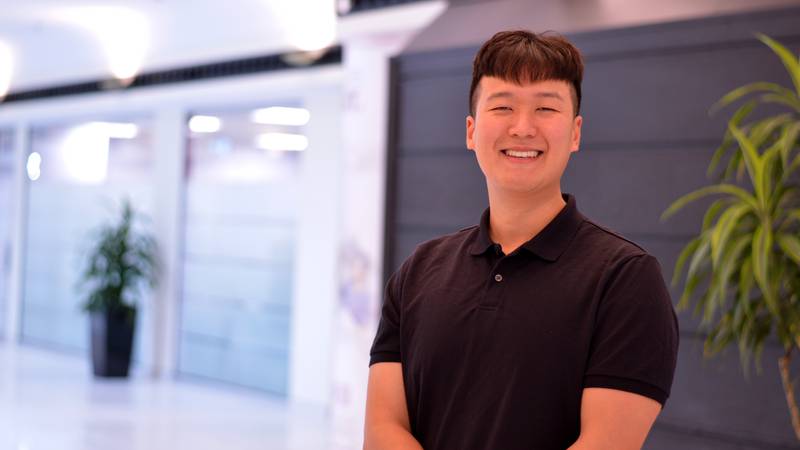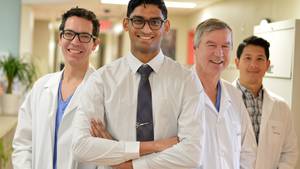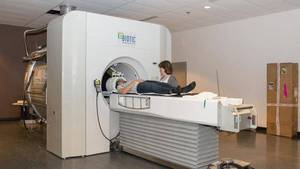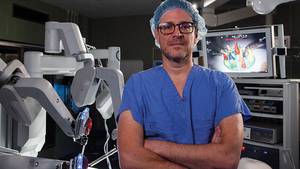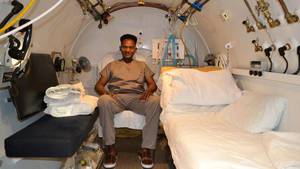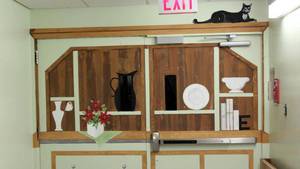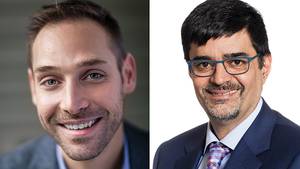When Sean Wang started university, he wasn’t sure he wanted to be a doctor. Although he had an interest in health and science, it wasn’t until an unexpected experience during his third year that he realized his passion for medicine.
“I always knew I wanted to do something human-related, where I could work with people,” remembers Sean. “During my undergrad in medical sciences, I chose a lot of volunteering opportunities that would allow me to experience what it's like to be in the hospital environment and figure out whether or not that's the right setting for me.”
Born in Madrid, Spain to Chinese parents, Sean and his family settled in Halifax when he was in first grade. After graduating from Citadel High School and Dalhousie University’s Bachelor of Science program, Sean is now a third-year student at Dalhousie Medical School.
Sean’s inspiration for pursuing medicine stems from what he refers to as one of the lowest moments in his life. During his third year of undergraduate studies, Sean was overloaded with academics, work and extracurricular activities — up to 36 hours per week on top of a full school schedule.
Sean remembers being restless during school, argumentative with friends and physically unwell. This led to him nervously attending his first therapy session — something unspoken of in his Asian-Canadian household.
This therapy session changed Sean’s life and set the course for his future in medicine and general well-being.
“My therapist helped me realize that my stress stemmed from my focus on constantly meeting goals,” explains Sean. “She suggested that I view my activities from a value-driven rather than a goal-driven perspective.”
Sean spent some time reflecting on his core values and what’s important to him. He reduced the number of activities he was involved in by choosing the most meaningful to him and letting the others go — along with much of his stress.
After meeting with his therapist, Sean says he not only became happier and healthier but also realized that the best way to live out his values was to become a physician.
“I hold similar values to those that are encouraged in medicine,” says Sean. “I value open-mindedness, advocacy, empathy, community and life-long learning.”
With another year and a half of medical school before his residency, Sean is yet undecided about what specialty he’d like to pursue.
Through the curriculum at Dalhousie, Sean and other medical students complete clerkships — an integrated learning experience where they work directly with patients — in areas such as internal medicine, family medicine, psychiatry and emergency medicine.
Just seven weeks into his internal medicine experience, Sean has thoroughly enjoyed his time working in the QEII Health Sciences Centre.
“The patients I’ve worked with have been wonderful,” says Sean. “And the residents, staff and the rest of the team are very supportive.”
Sean is also passionate about advocating for the well-being of Asian-Canadians and other marginalized groups, noting that familial, cultural and societal pressures are overwhelming for many minorities in Canada. Particularly for Asian-Canadians, mental health care is rarely spoken of, deterring many from leading healthy and happy lives.
As a future physician, Sean also feels strongly about advocating against anti-Asian racism through meaningful patient interactions, awareness movements, educational seminars, curriculum changes and more.
“I believe with my strong values of social equity and advocacy, and my love for our Nova Scotian community, I will be able to make a difference in our health care moving forward,” says Sean.
A recipient of a 2022 QEII Foundation Diversity in Health Care Bursary — offered annually to post-secondary students from diverse backgrounds pursuing a career in health care — Sean has experienced first-hand the power of diversity in health care.
Sean recounts that he’s had multiple experiences with people of Chinese backgrounds who are unable to communicate with their caregivers in a healthcare setting. He gives an example of an elderly Chinese gentleman with dementia who was speaking Mandarin. While the nurses were doing the best they could to communicate and provide what the patient needed, Sean was able to help translate for the nurses and provide the patient with some cultural familiarity.
“After having a conversation with him, you could see him light up,” says Sean. “And it helped his healthcare team understand his exact needs.”
Sean notes that diversity on a system level is also important. By understanding population and cultural trends throughout the province, the healthcare system will be better equipped to provide accessible, equitable health care to Nova Scotians. It’s also important to build trust and have the needs and values of all populations advocated for.
Receiving this bursary from the QEII Foundation has been a big step on Sean’s journey through medical school. The bursary has not only provided a financial boost to his education but has also validated that his personal values match those of his chosen profession. It has given him the opportunity to have his voice heard.
“It's nice to have a voice that's not just for me but for all immigrants and people whose first language is not English; for those who aren't able to really speak up in the way that they want to be heard,” says Sean.
Most of all, Sean wants to acknowledge his family, who worked very hard – holding down multiple full-time jobs and taking classes to learn English – to help him get where he is today.
“This award isn’t only for me but for my parents and people like them who are working quietly in the background,” says Sean.
To learn more or sponsor a student, visit QE2Foundation.ca/Diversity.

